25 Feb2021
By Katrina Norfleet

AACTE is pleased to announce authors of the article, “Rethinking High-Leverage Practices in Justice-Oriented Ways,” as the recipient of the 2021 AACTE Outstanding Journal of Teacher Education Article Award. Published in the September/October 2020 issue of the journal, the authors of the article, Angela Calabrese Barton of University of Michigan, Edna Tan of University of North Carolina at Greensboro, and Daniel J. Birmingham of Colorado State University are being presented with the award at today’s virtual AACTE 73rd Annual Meeting Awards Forum.

“There is much to admire and value about the scholarship that Calabrese Barton, Tan, and Birmingham report in this award-winning piece,” said Elizabeth Birr Moje, dean of the School of Education, University of Michigan. “Their ambitious pursuit of justice-oriented teaching practice, conducted in partnership with teachers, makes invaluable contributions to our understanding of how educators engage in socially transformative teaching.”
22 Feb2021
Invited Speakers Talk About Courageous Action
By Sumi Hagiwara
 The call to action to engage our collective consciousness by resisting hate and restoring hope through courageous action is now. After the summer of racial reckoning, institutions have re-examined mission and vision statements for what many consider a watershed moment with “talk of transformation, roadmaps, and “action steps” toward sweeping curricular reforms (Bartlet, T, 2021). The Improving Practices in STEM Teacher Preparation (IPSTP) Topical Action Group (TAG) likewise responds to the call by reimagining TAG activities and engaging members to reflect, reimagine, and take action through STEM teacher education.
The call to action to engage our collective consciousness by resisting hate and restoring hope through courageous action is now. After the summer of racial reckoning, institutions have re-examined mission and vision statements for what many consider a watershed moment with “talk of transformation, roadmaps, and “action steps” toward sweeping curricular reforms (Bartlet, T, 2021). The Improving Practices in STEM Teacher Preparation (IPSTP) Topical Action Group (TAG) likewise responds to the call by reimagining TAG activities and engaging members to reflect, reimagine, and take action through STEM teacher education.
To start the work for envisioning courageous action, the IPSTP TAG has invited scholars to share their work in socially just and equity-sustaining STEM practices. The invited speakers include Angela Calabrese Barton of the University of Michigan, Edna Tan of the University of North Carolina at Greensboro, Tanya Maloney of Montclair State University, and Kathleen Schenkel of San Diego State University.
02 Feb2021
By Michael W. Apple

During the virtual AACTE 2021 Annual Meeting, attendees are invited to join their peers at the Learning Lab session, Disrupting Inequities: Local and Global initiatives for Shared Responsibility in Diversity, Equity, and Social Justice on Friday, February 26, 10:00 – 11:00 a.m. AACTE member
Michael W. Apple of the University of Wisconsin addresses this topic in the following thought leadership article.
Schools, particularly public schools, are under a great threat right now. And as education leaders, it’s imperative that we understand the current environment. There is a growing anger towards our educational system that is visible statewide and at a national level. Fueled by restorative politics, many of those who have lost their faith in public schools believe that educators place too much emphasis on equitable education. Yet, while much more needs to be done, the simple fact that some people are criticizing schools must mean that we must be doing something right already. If we weren’t working at interrupting racial injustice many people, especially those who are ultra-rightists, wouldn’t be so angry at schools and teachers.
29 Jan2021
By Bianca Nightengale-Lee
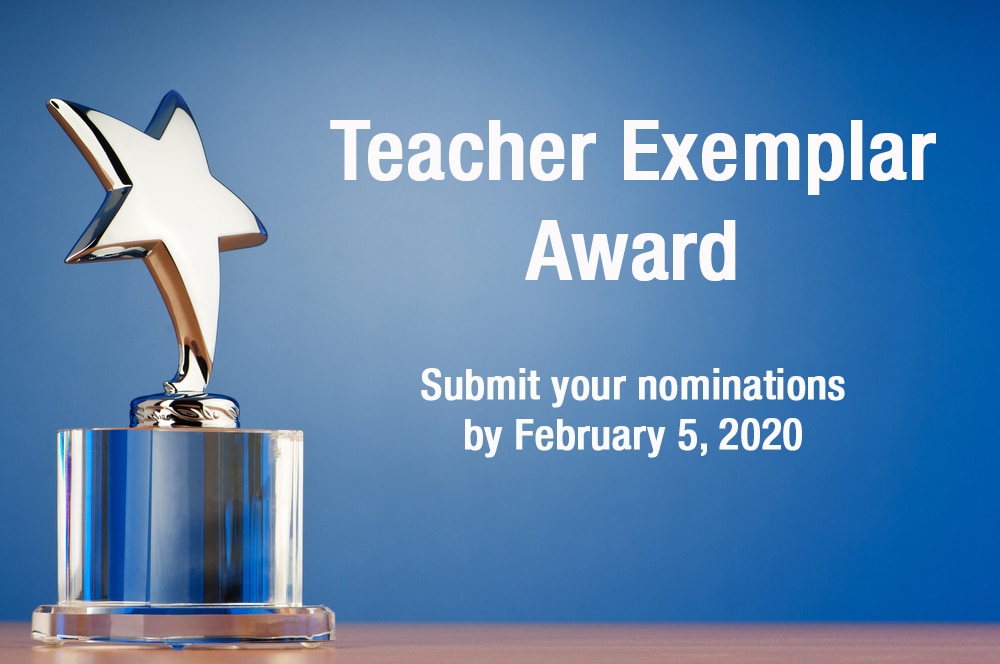
The Teacher Exemplar Award is presented by the AACTE Diversified Teacher Workforce (DTW) Topical Action Group (TAG) to recognize exceptional student/clinical teachers of Color and PK-12 mentor/cooperating teachers who serve as mentors to student/clinical teachers in field experiences. The instructional pedagogies and practices embodied by the recipients of this award reflects the DTW TAG mission and goals and advances our current understanding of the importance of cultivating a diversified teaching workforce that enhances educational opportunities for ethnically, culturally, and linguistically diverse students.
Recipients of these awards have demonstrated effective instructional/pedagogical practices, advocacy skills, and a service-minded disposition toward addressing inequities through their teaching, participation in local community, school, and/or grassroots service efforts. In recognition and honor of this important work, the recipients will receive a $500 honorarium each and be recognized in our 2021 DTW Virtual Institute. Also, the recipients will be asked to participate on the planning committee of the 2022 DTW Institute.
07 Jan2021
By Andrew Schiera
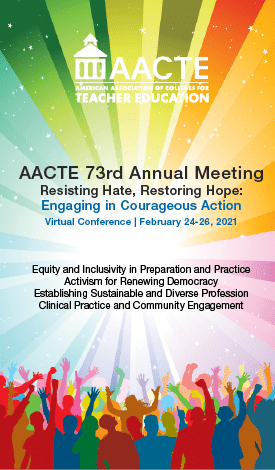 During the virtual AACTE 2021 Annual Meeting, attendees are invited to join their peers at the Deeper Dive Session, Leading in the Time of Crisis: Responding to COVID19 and Social Justice Movements, Wednesday, February 24 at 4:00 – 5:15 p.m. AACTE member Andrew J. Schiera of the University of Pennsylvania Graduate School of Education addresses this topic in the following thought leadership article.
During the virtual AACTE 2021 Annual Meeting, attendees are invited to join their peers at the Deeper Dive Session, Leading in the Time of Crisis: Responding to COVID19 and Social Justice Movements, Wednesday, February 24 at 4:00 – 5:15 p.m. AACTE member Andrew J. Schiera of the University of Pennsylvania Graduate School of Education addresses this topic in the following thought leadership article.
Our world has never experienced anything like it did in 2020. Last year, we found ourselves at a major crossroad. Amidst fighting a global pandemic, our country also experienced intense civil unrest and protests due to the killings of George Floyd, Breonna Taylor, Ahmaud Arbery, and others. We have all been deeply affected by these events, and our nation’s teachers have been thrust into a world unknown. They must not only become practical-minded, on-the-ground social justice educators but must learn how to do so effectively in an ever-changing virtual environment. Now, more than ever, we must dig deep into what we know as teacher educators and to listen, anticipate, and plan rather than reacting to barriers (both expected and unexpected) that emerge along the way.
07 Jan2021
By AACTE
The following statement was included in a Washington Post article on January 7.
AACTE President and CEO Lynn M. Gangone issued the following statement today regarding the horrific events that took place yesterday, January 6, 2021, at the U.S. Capitol building:
“Our nation experienced a serious threat to our treasured democracy as rioters stormed one of our nation’s sacred buildings, the U.S. Capitol, intending damage and insurrection. We witnessed a challenge to our democracy that none of us could ever have imagined. Generated by our nation’s President, some Members of Congress, and their denial of the results of our free and open electoral process, this unlawful invasion of the Capitol has left us all stunned. Never could we imagine such an event would occur in our nation’s capital, the seat of our democracy.
We are further outraged by the vast difference in how these rioters were treated by police as compared to how peaceful protesters for Black Lives Matter have been treated. The discrepancies are stark and maddening.
06 Jan2021
By Susan Baker

This article is part of a series that originally appeared on the Education First Blog and is reprinted with permission.
Here in the College of Education at California State University Sacramento, we’ve been in the business of preparing teachers for 73 years, and in the past few years have prepared approximately 380 teachers annually across 12 certification areas. A central aspect of our offerings across these programs is a focus on helping candidates understand the relationship between societal inequities and student learning, with special focus on race, class, gender, and other socially constructed categories. We knew that these understandings were key to our candidates’ success in developing equitable, healthy relationships with their K-12 students.
But we found that this wasn’t enough. The mentor teachers who support our candidates in their clinical experiences started asking us faculty some tough questions about whether these aspects of our preparation really prepared our candidates to be ready to teach all children on day one. Was the preparation coherent and clear for candidates? Were candidates provided opportunities to practice the ways in which teachers cultivate equitable, culturally responsive anti-racist classroom environments?
04 Dec2020
By Jacob Easley II
This article originally appeared in Diverse Issues in Higher Education and is reprinted with permission.
 The 1787 U.S. Constitution was ratified to establish justice, liberty, and prosperity, but not for all Americans. Like the Constitution, early American educational practices were based on a system of whiteness and elitism. Justice and prosperity for those who comprise marginalized groups have remained largely unfulfilled. We know for certain that we are a pluralistic society. No one group has singularly built this nation, secured its borders, nor defended its values. The plurality of our nation is our strength. As educators, particularly who prepare America’s future teachers, we must double down, now more than ever, on what Horace Mann said, “Education, beyond all other devices of human origin, is the great equalizer of the conditions of men, the balance wheel of the social machinery.”
The 1787 U.S. Constitution was ratified to establish justice, liberty, and prosperity, but not for all Americans. Like the Constitution, early American educational practices were based on a system of whiteness and elitism. Justice and prosperity for those who comprise marginalized groups have remained largely unfulfilled. We know for certain that we are a pluralistic society. No one group has singularly built this nation, secured its borders, nor defended its values. The plurality of our nation is our strength. As educators, particularly who prepare America’s future teachers, we must double down, now more than ever, on what Horace Mann said, “Education, beyond all other devices of human origin, is the great equalizer of the conditions of men, the balance wheel of the social machinery.”
America has yet to become an equal society, and these societal ills create the need for scholar activism embedded in Critical Race Theory (CRT), which historically documents and names the atrocities carried out in this country in the name of freedom, liberty, and democracy. America’s struggle to uphold the Constitution for all its citizens makes it necessary to examine the structural oppression that encumbers the United State from fully living up to its democratic ideals. Through CRT, scholars across higher education have researched racial inequality that emerged from the social, economic, and legal differences created between races to maintain elite, white interests in this country. If our national laws and practices are to ensure justice and equity, then educators have a great deal of work to do in ensuring the American ideals we teach youth to value in school are a reality for all.
01 Dec2020
By Jerrica Thurman

On November 19, AACTE held its inaugural virtual Town Hall featuring an interactive discussion on Critical Race Theory (CRT) in education with six leading educators: Marvin Lynn, Ph.D., dean and professor, College of Education, Portland State University; Kimberly White-Smith, Ed.D., dean, La Fetra College of Education and Professor, University of La Verne; Lisa Norton, Ed.D., dean, College of Education and Health Sciences, Touro University, California; Jesse Perez Mendez, Ph.D., dean, College of Education, Texas Tech University; John Henning, Ph.D., dean, School of Education, Monmouth University; and Jacob Easley II, Ph.D., dean, Graduate School of Education, Touro College. During the session, the panelists addressed the integral role educator preparation programs play in advancing scholarly work on CRT as well as questions posed by the audience.
As the moderator, Mendez guided the conversation beginning with an explanation of CRT. “Please define Critical Race Theory and explain its tenets and brief history in education,” he said. Lynn responded, “Critical Race Theory is defined as a historical analysis and critique of racism and white supremacy. It’s an analysis of racism and white supremacy in the law and society that really uses relevant examples of case law, public policy, popular culture and critical historical events that are designed to draw attention to the way in which the law is racially constituted.” Lynn said, “And then we can think about critical race theory as an interdisciplinary critical theoretical method that’s taken up again chiefly by legal scholars. It draws on fields of sociology, anthropology, ethnic studies, and women’s studies to put forward a critique, a broad, systemic critique of race and racism as a key axis of power in the United States and around the world.”
19 Nov2020
By Adriana Labarta
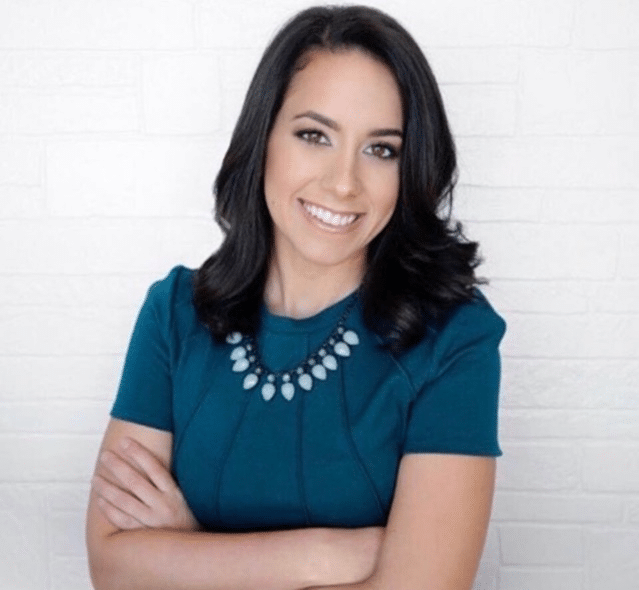 Amid the COVID-19 pandemic, institutions of higher education have experienced various challenges, including transitions to online learning and adaptations to the delivery of campus services. Students, faculty, and staff alike have navigated feelings of anxiety and stress amid these uncertain times. Further, students that identify as Black, Indigenous, and People of Color (BIPOC) are navigating two pandemics: COVID-19 and systemic racism. This reality presents an important question: How are university systems working to address racial injustice and support BIPOC students?
Amid the COVID-19 pandemic, institutions of higher education have experienced various challenges, including transitions to online learning and adaptations to the delivery of campus services. Students, faculty, and staff alike have navigated feelings of anxiety and stress amid these uncertain times. Further, students that identify as Black, Indigenous, and People of Color (BIPOC) are navigating two pandemics: COVID-19 and systemic racism. This reality presents an important question: How are university systems working to address racial injustice and support BIPOC students?
On Monday November 2, 2020, the College of Education (COE) Student Achievement Council (SAC) at Florida Atlantic University (FAU) collaborated with AACTE’s Holmes Scholars Program and the COE Diversity Committee to host a student outreach event with the purpose of addressing the aforementioned question. The three-part virtual presentation consisted of a welcome from COE Dean Stephen Silverman, a panel discussion with FAU’s Holmes Scholars, and an open discussion with all attendees of the event.
17 Nov2020
By Katrina Norfleet

Facilitated by a panel of education deans, this open forum will examine and discuss the integral role educator preparation programs play in advancing scholarly work on Critical Race Theory, as well as ways to resist attacks on institutions’ efforts centered around this work. You are invited to join your colleagues and share challenges and success stories about your efforts to address race, equity, and social justice during these challenging times including the following topics:
- The challenges EPPs face in advancing diversity, equity, and inclusion initiatives because of the federal ruling and COVID-19
- How EPPs can resist the recent attacks on institutions’ work and impact centered on Critical Race Theory
- Success stories of EPPs’ work in Critical Race Theory since the federal ruling and COVID-19
09 Nov2020
By Jerrica Thurman

Register today for the AACTE Town Hall on Critical Race Theory on November 19 at 3:00 p.m. -4:00 p.m. EST. Critical Race Theory provides a lens to understand race, racism, oppression, and power in America. Join the AACTE Town Hall on the integral role educator preparation programs play in advancing scholarly work on Critical Race Theory and discuss ways to resist recent federal attacks on institutions’ efforts centered on this work. Bring your voice to the AACTE open forum and share challenges and success stories about your efforts to address race, equity, and social justice during these challenging times.
02 Nov2020
By Lynn M. Gangone
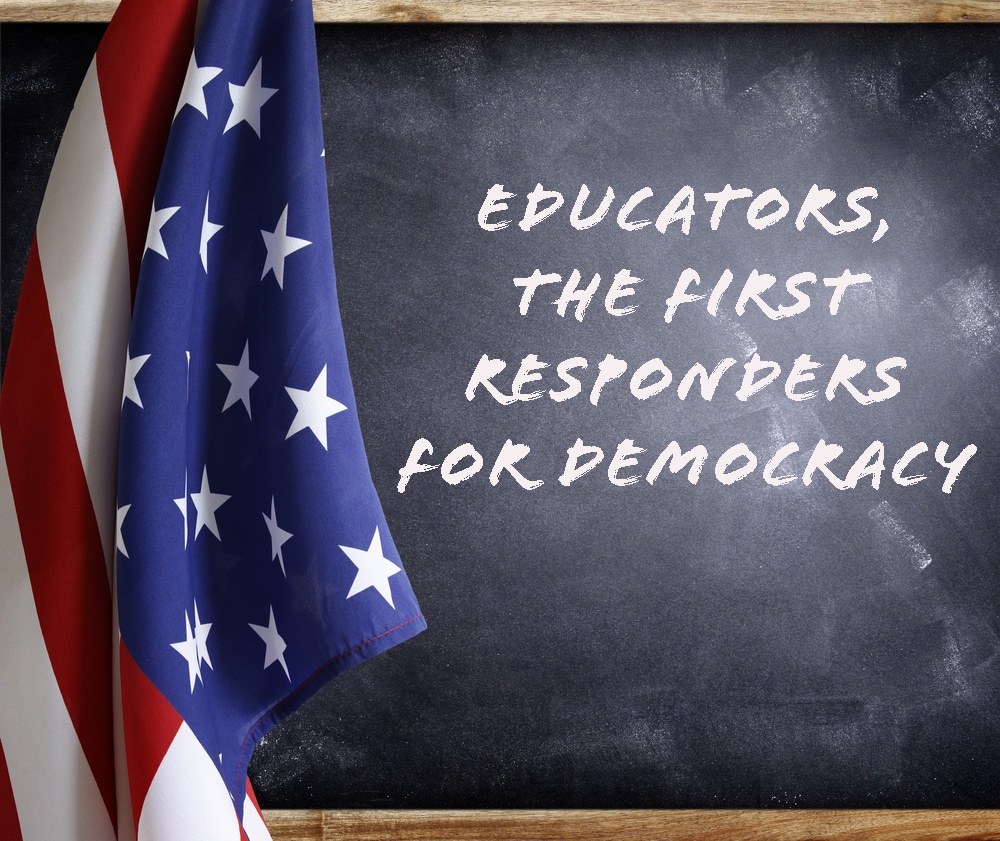
“Democracy cannot succeed unless those who express their choice are prepared to choose wisely. The real safeguard of democracy, therefore, is education.” – Franklin D. Roosevelt
As educators, we have confronted monumental challenges this year, and yet, have managed to still make great strides. In mid-March, while closing our classrooms due to the COVID-19 outbreak, we found ways to educate our students virtually. Amidst mounting challenges, educators united to ensure that our nation’s children were able to continue learning.
Then, just as we were discovering coping mechanisms to live amidst the COVID-19 pandemic, we bore witness to incredible injustice and racial bias with the unjust deaths of George Floyd, Ahmaud Arbery, Breonna Taylor, and countless others. Educators heeded the call for justice, uniting with the community at large, to show that racism will not be tolerated. But despite having met these challenges head on, we cannot rest upon our laurels. The battles that lie ahead are too important and necessary to protect the core of our democracy.
02 Nov2020
By AACTE
On behalf of the Board of Directors of the American Association of Colleges for Teacher Education (AACTE), President and CEO Lynn M. Gangone issued the following statement today urging educators to resist the Trump administration’s attack on critical race theory and other anti-racism work in education:
“In its June 4 statement, the AACTE Board of Directors called educators to take courageous action on race matters in America to address not only recent racial injustices across the nation but also structural racism that has deep, historic roots in our society. Critical race theory represents the scholarly work of educators who provide research evidence and expertise on how the legacy of slavery and inequality in America has unequivocally influenced our American way of life, including our system of education, and on effective ways to dismantle structural racism in American society. It has long been the focus of scholars across many disciplines, which has contributed to the great strides institutions have made in advancing human and civil rights for all Americans.
Banning federal funds to be used for professional development that addresses topics like white privilege, implicit bias, and structural racism, which are examined within critical race theory, is a denial of the historic realities of our country, and is an assault on the strategic gains institutions of higher education and educator preparation programs have made to enlighten students and affect change that promotes racial and social justice for all. Educators must resist any setbacks to the many years of research and activism scholars have made to progress our nation into a society that values the lives of all human beings.
AACTE and its member institutions are committed to revolutionizing education by upholding high standards in the preparation of future teachers through inclusive curriculum and evidence-based instructional strategies, modeling, and advocacy that dismantle racial oppression. AACTE members are actively working to diversify the teaching profession, address the teacher shortage, redesign curricula that reflects the needs of 21st century learners, advocate for policies that fund student teachers of color, and build social justice partnerships for strengthening the education community—all in a concerted effort to advance diversity, equity, and inclusion in PK-20 education. Critical race theory is at the foundation of this vital work. AACTE calls on educators and the educator preparation community to stay the course and to actively support the work of critical race theorists and other anti-racism efforts for building a more racially just society.
###
AACTE: The Leading Voice on Educator Preparation
The American Association of Colleges for Teacher Education is a national alliance of educator preparation programs and partners dedicated to high-quality, evidence-based preparation that assures educators are profession-ready as they enter the classroom. The 700 member institutions include public and private colleges and universities in every state, the District of Columbia, the Virgin Islands and Guam. Through advocacy and capacity building, AACTE promotes innovation and effective practices that strengthen educator preparation. Learn more at aacte.org.
29 Oct2020
By Jerrica Thurman
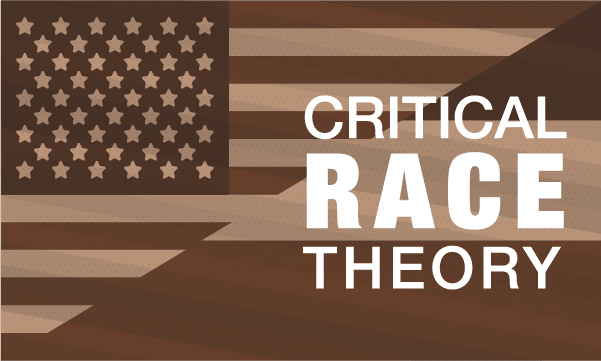 AACTE members took action when the Trump administration issued an attack on critical race theory two months ago. In its blistering critique of anti-racist initiatives, the Administration essentially banned work on critical race theory in use of professional development funded by federal dollars. In partnership with Education Deans for Justice and Equity, AACTE members united in a written response signed by over 400 scholars of race in education, led by Marvin Lynn, dean and professor of the college of education at Portland State University. The memo is as follows:
AACTE members took action when the Trump administration issued an attack on critical race theory two months ago. In its blistering critique of anti-racist initiatives, the Administration essentially banned work on critical race theory in use of professional development funded by federal dollars. In partnership with Education Deans for Justice and Equity, AACTE members united in a written response signed by over 400 scholars of race in education, led by Marvin Lynn, dean and professor of the college of education at Portland State University. The memo is as follows:
Critical Race Theory in Education Scholars Respond to Executive Memo M-20-34
On September 4, 2020, Russell Vought, Director of the Office of Management and Budget for the Executive Office of the President issued M-20-34, a “memorandum for the heads of executive offices and agencies.” The document states, “Executive Branch agencies have spent millions of taxpayer dollars, to date, on ‘training’ government workers to believe divisive, anti-American propaganda.” As critical race scholars working in universities and communities across the globe, the following statement is our response to Mr. Vought’s memorandum.









 The call to action to engage our collective consciousness by resisting hate and restoring hope through courageous action is now. After the summer of racial reckoning, institutions have re-examined mission and vision statements for what many consider a watershed moment with “talk of transformation, roadmaps, and “action steps” toward sweeping curricular reforms (Bartlet, T, 2021). The Improving Practices in STEM Teacher Preparation (IPSTP) Topical Action Group (TAG) likewise responds to the call by reimagining TAG activities and engaging members to reflect, reimagine, and take action through STEM teacher education.
The call to action to engage our collective consciousness by resisting hate and restoring hope through courageous action is now. After the summer of racial reckoning, institutions have re-examined mission and vision statements for what many consider a watershed moment with “talk of transformation, roadmaps, and “action steps” toward sweeping curricular reforms (Bartlet, T, 2021). The Improving Practices in STEM Teacher Preparation (IPSTP) Topical Action Group (TAG) likewise responds to the call by reimagining TAG activities and engaging members to reflect, reimagine, and take action through STEM teacher education. 

 During the virtual AACTE 2021 Annual Meeting, attendees are invited to join their peers at the Deeper Dive Session, Leading in the Time of Crisis: Responding to COVID19 and Social Justice Movements, Wednesday, February 24 at 4:00 – 5:15 p.m. AACTE member Andrew J. Schiera of the University of Pennsylvania Graduate School of Education addresses this topic in the following thought leadership article.
During the virtual AACTE 2021 Annual Meeting, attendees are invited to join their peers at the Deeper Dive Session, Leading in the Time of Crisis: Responding to COVID19 and Social Justice Movements, Wednesday, February 24 at 4:00 – 5:15 p.m. AACTE member Andrew J. Schiera of the University of Pennsylvania Graduate School of Education addresses this topic in the following thought leadership article.
 The 1787 U.S. Constitution was ratified to establish justice, liberty, and prosperity, but not for all Americans. Like the Constitution, early American educational practices were based on a system of whiteness and elitism. Justice and prosperity for those who comprise marginalized groups have remained largely unfulfilled. We know for certain that we are a pluralistic society. No one group has singularly built this nation, secured its borders, nor defended its values. The plurality of our nation is our strength. As educators, particularly who prepare America’s future teachers, we must double down, now more than ever, on what Horace Mann said, “Education, beyond all other devices of human origin, is the great equalizer of the conditions of men, the balance wheel of the social machinery.”
The 1787 U.S. Constitution was ratified to establish justice, liberty, and prosperity, but not for all Americans. Like the Constitution, early American educational practices were based on a system of whiteness and elitism. Justice and prosperity for those who comprise marginalized groups have remained largely unfulfilled. We know for certain that we are a pluralistic society. No one group has singularly built this nation, secured its borders, nor defended its values. The plurality of our nation is our strength. As educators, particularly who prepare America’s future teachers, we must double down, now more than ever, on what Horace Mann said, “Education, beyond all other devices of human origin, is the great equalizer of the conditions of men, the balance wheel of the social machinery.”
 Amid the COVID-19 pandemic, institutions of higher education have experienced various challenges, including transitions to online learning and adaptations to the delivery of campus services. Students, faculty, and staff alike have navigated feelings of anxiety and stress amid these uncertain times. Further, students that identify as Black, Indigenous, and People of Color (BIPOC) are navigating two pandemics: COVID-19 and systemic racism. This reality presents an important question: How are university systems working to address racial injustice and support BIPOC students?
Amid the COVID-19 pandemic, institutions of higher education have experienced various challenges, including transitions to online learning and adaptations to the delivery of campus services. Students, faculty, and staff alike have navigated feelings of anxiety and stress amid these uncertain times. Further, students that identify as Black, Indigenous, and People of Color (BIPOC) are navigating two pandemics: COVID-19 and systemic racism. This reality presents an important question: How are university systems working to address racial injustice and support BIPOC students?
 AACTE members took action when the Trump administration issued an attack on critical race theory two months ago. In its blistering
AACTE members took action when the Trump administration issued an attack on critical race theory two months ago. In its blistering